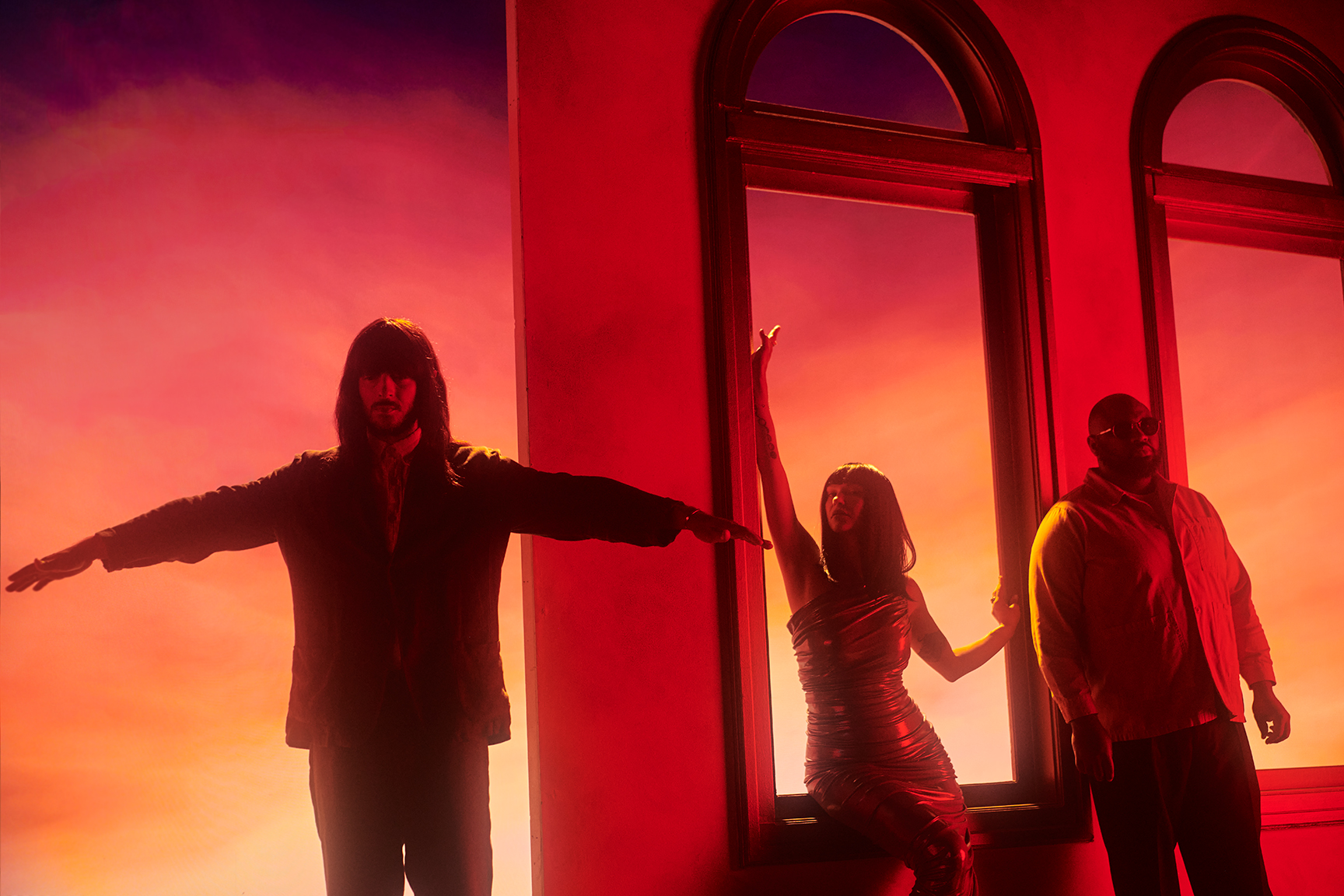
Khruangbin: “Just because it’s formulaic, doesn’t mean that it’s not heartfelt.”
For their newest album, we had a quick chat with 2/3 of Khruangbin on topics from their newest release, their past set in Jakarta, and how they transcend lyrics for the pursuit of songwriting.
Words by Whiteboard Journal
Words: Garrin Faturrahman
Photo: David Black
You have been listening to Khruangbin. Whether intentionally or overhearing their distinctively eloquent sounds out in your friend’s house or some friendly neighborhood café, the band is probably playing a number or two. Just like the band’s name (lit. “engine fly” or “airplane” in Thai), you can really see and feel their songs flying here and there, places to places, collecting and bringing influences wherever they go.
Their fourth and latest album, A LA SALA, has aired and gone to places—both figuratively and literally—with three crews on the flight deck: This album marks the band’s first time in exclusively featuring just the whole ensemble, Mark Speer (Gt.), Laura Lee (Ba.), and Donald “DJ” Johnson (Dr.) as songwriters and performers. This time, we had a quick chat with just Laura and DJ on topics from their newest release, their past set in Jakarta, and how they transcend lyrics for the pursuit of songwriting.
Congratulations on your new album!
Laura & DJ: Thank you!
I saw that your vinyl releases were released in a spectrum of variants, and they are all so pretty! What would be the lore behind each of the rooms?
Laura: The sort of imagery in the record cover is meant to be familiar, but also dreamlike, because the room and the window itself is something that everybody has in their home—to a degree—and the image outside the window, almost all of them are taken from an airplane. So, it’s sort of like this dreamscape in your home, and they’re just meant to be different versions of the same thing and sort of have that, like, choose-your-own-adventure-quality.
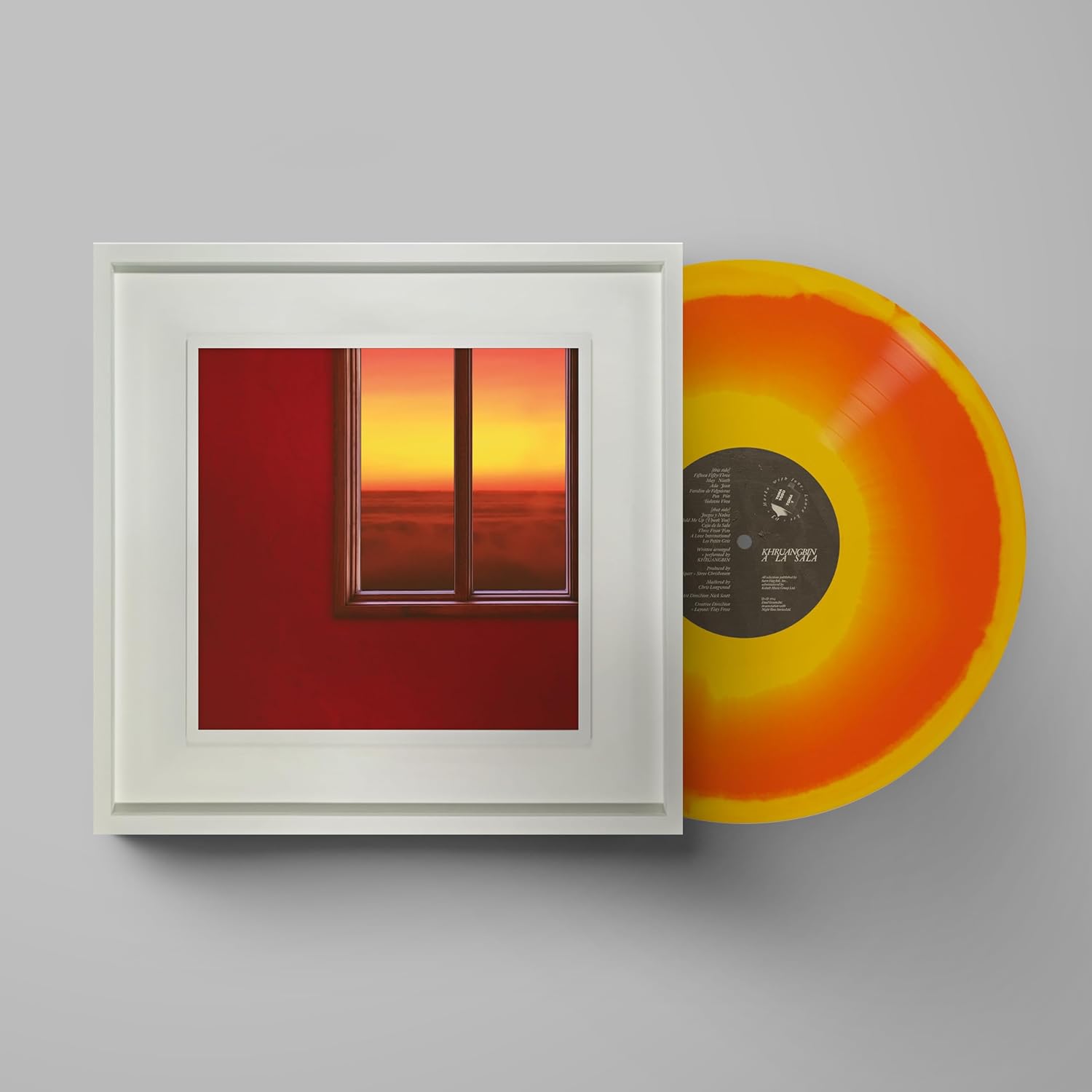
A LA SALA, Soleil Edition. (Credits: Amazon)
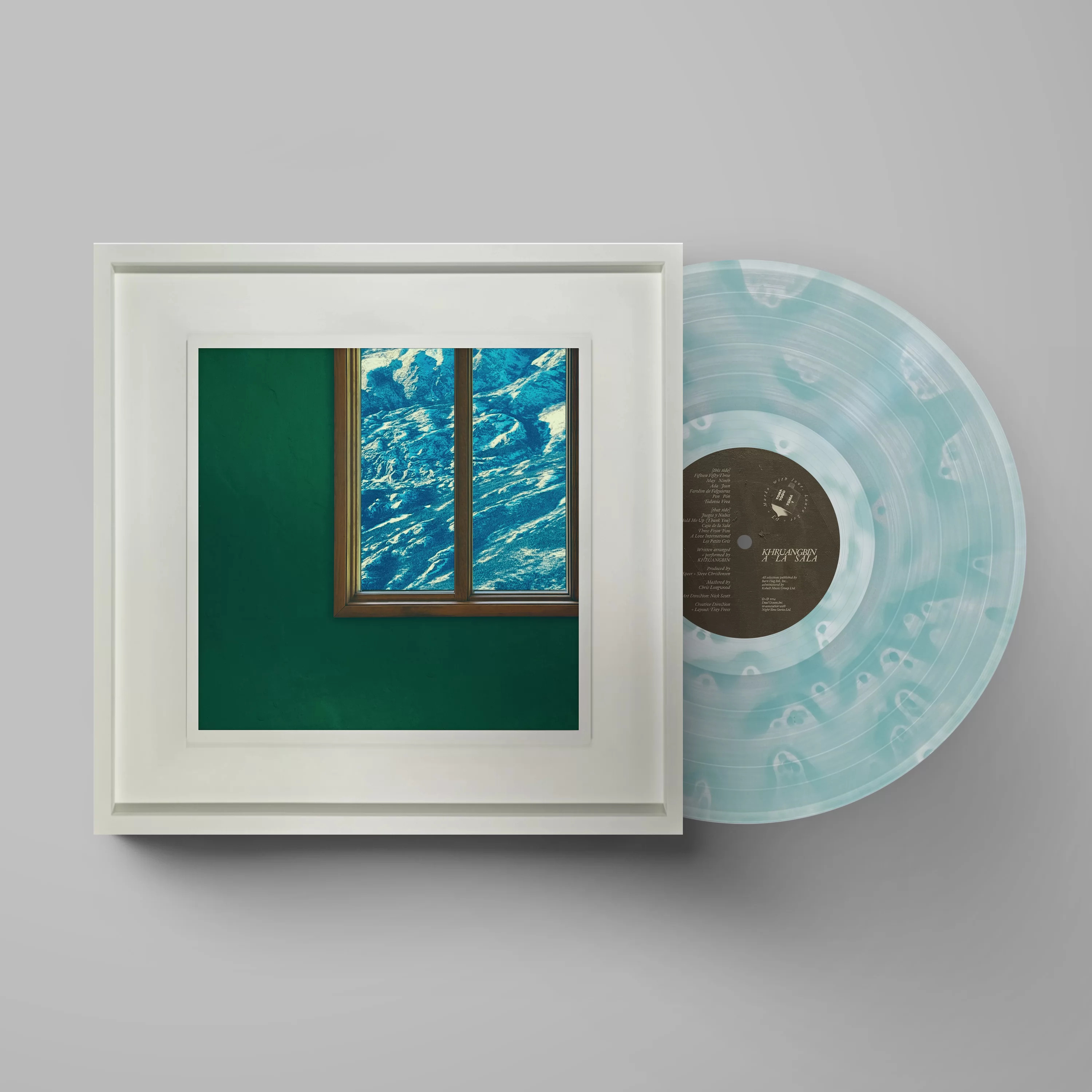
A LA SALA, Spotify Fans First Edition. (Credits: Secretly Store)
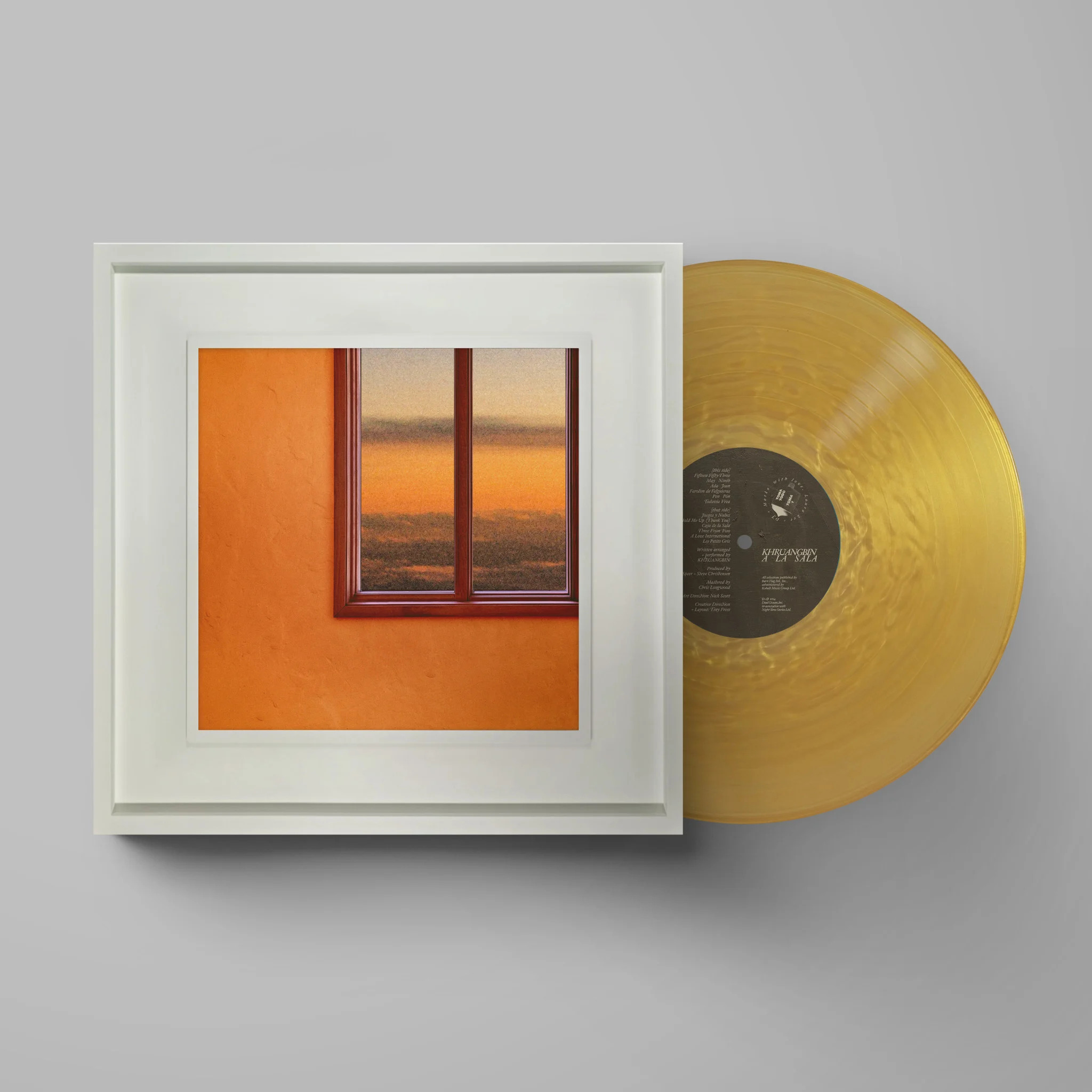
A LA SALA, Indies Gold Edition. (Credits: Stranger Than Paradise Records)
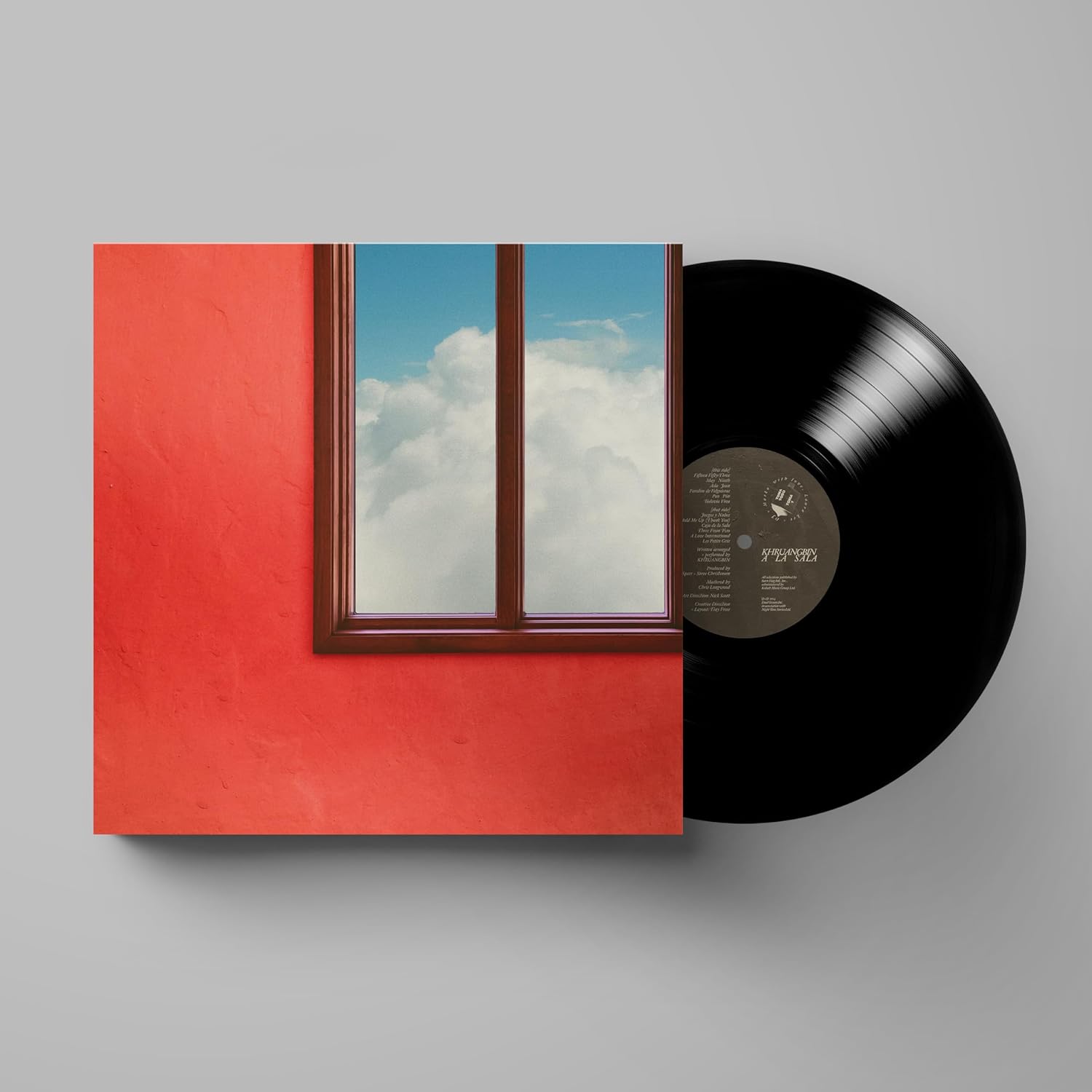
A LA SALA. (Credits: Amazon)
I associate your songs to the feeling of being in a space of eclecticness, where it can feel like a melting pot of sorts. Can you describe to me what kind of a place—or where—is A LA SALA set?
DJ: The obvious place would be a living room, and during the recording process, we were really attentive to making things sound close and more intimate than you would, I guess, in the recording room or in a more live environment. Everything was meant to be more quiet and cozy. So, once we decided to go in that direction, and kind of enforce the creative for the rest of the way in how we approached the way we played the songs and playing them in a cozy living room type of way.
It’s somewhere familiar, maybe?
DJ: Yeah. From a certain standpoint, everyone has a living room somewhere, you know? If you have a home, there’s a living area. So, it kind of embodies that whole concept of a place where family can come and gather in a small intimate environment and experience life.
With the latest album, you are back in your instruments-forward era. Do you feel like you’re “back home” after exploring lyrics-heavy songwriting in your previous releases?
Laura: Yeah, I mean, I think there was an intention behind wanting to have another instrumentally-leaning album. We had done a lyrics-heavy record, and we’d also collaborated with other artists that had lyrics across most of the songs that I think it felt comforting to kind of retreat to this place where we started from.
Song lyrics may be used as a tool by songwriters as a basis for listeners to understand whatever is meant to convey in a song. Would you say that lyrics are one of “easiest” ways in shaping up the worldbuilding in songs?
DJ: Absolutely. Yeah, lyrics are so easy because they kind of more or less tell you what the song is about, and kind of spell it out. But on the flip side of that, also, you can do the same with a melody, or rhythm.
They can convey just as much emotion as lyrics can, especially in the absence of a vocal or a lyric. And that’s something that we’re very conscious of, and listening to music, in other languages that we don’t speak, listening to songs outside of our native tongue. Although there may be a lyric for a vocal present, we don’t know or we’re not aware of what they’re saying. But somehow the message is still conveyed, because it can still be conveyed through our modes and the melodic content.
One of your songs, namely “Time (You and I),” had lyrics that ranged from Japanese, Korean, to Arabic. How does this blend of languages play out in your lyrical-play?
Laura: I think one of the things that we like in our previous albums that were more instrumental was that; because they were instrumental, they were universal. Because everybody understands a melody, and it’s not limited to a singular language.
So when we decided to write lyrics for that album, we wanted to incorporate lyrics in different languages, because we wanted to have that same feeling that you could be in various parts of the world, but still understand something. And obviously, we didn’t get every language because that would be very difficult, but we reached out to everybody that we knew that spoke another language and we were able to make something that we feel represented who we are, and to try to be as inclusive with our music as possible.
That’s nice. Oh, one light question: If Khruangbin was an airplane, what kind of an airplane would you guys be? A Concorde, or a low flying propeller maybe?
DJ: *chuckles*
Laura: I have no idea! I mean, I don’t know airplane models… I should, maybe, because our band name means airplane. I think it’s definitely some sort of a simple airplane. It doesn’t feel too modern, but it feels safe and secure. Haha! DJ! Maybe you know better than I do.
DJ: Yeah, I would tend to agree. Something simple that doesn’t have a lot of bells and whistles, but can get you from point A to point B safely and smoothly.
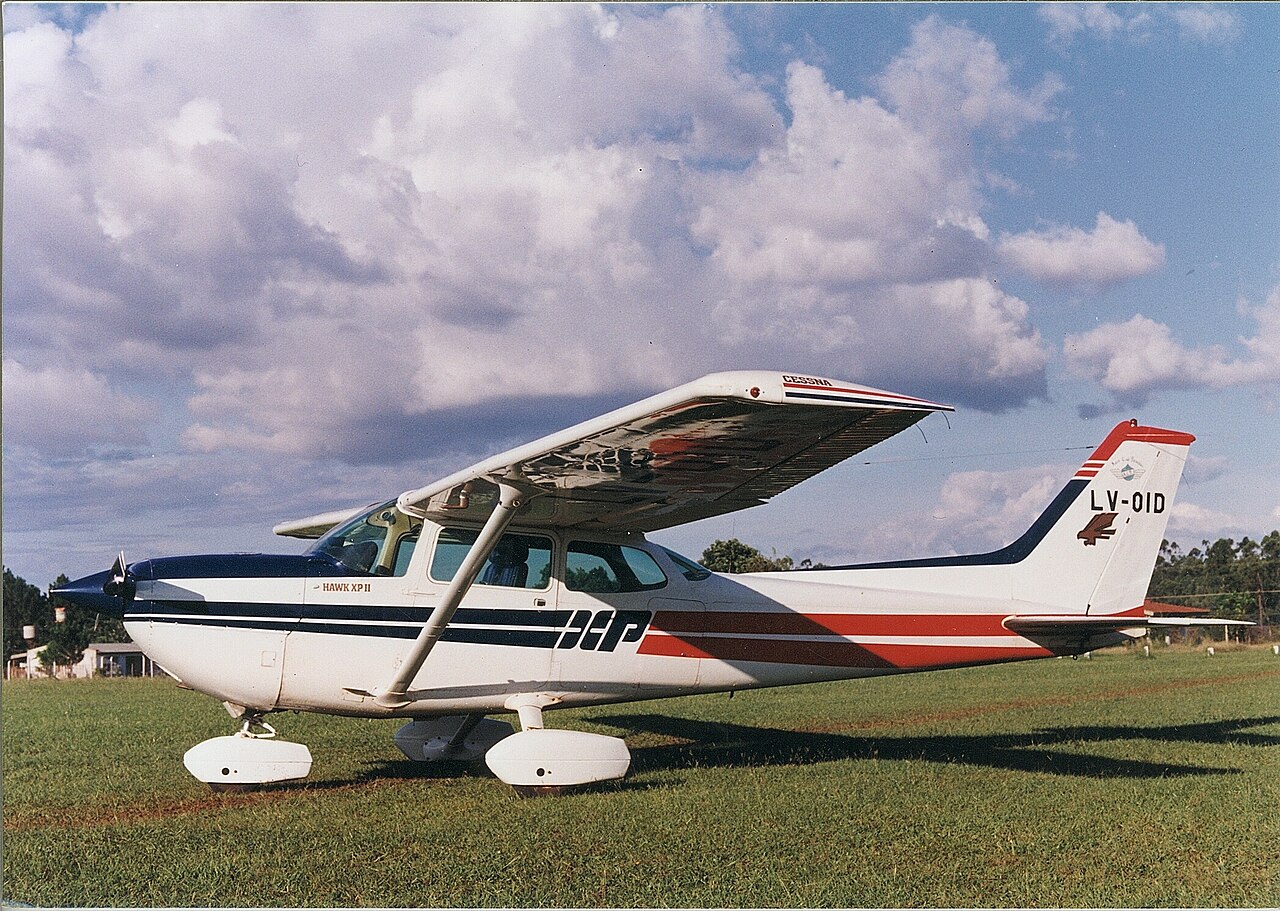
[Our guess is they are referring to a Cessna 172 — ed.] (Credits: Horacio Cambeiro)
Nowadays, songs can be argued to be “scientifically engineered” to be as “catchy as possible” for the sake of garnering listeners through bite-sized videos on social media. Do you think this phenomenon could dismiss (or diminish) the “values” that are present in songwriting?
DJ: I think it depends on the approach. There could be a recipe to songwriting that may be tried and true, and it just depends on what works for whoever’s writing or the audience that it’s intended for. Some things are meant to be more formulaic, and some things are meant to be more heartfelt. But at the same time, just because it’s formulaic, doesn’t mean that it’s not heartfelt.
It’s like, if you were to follow one of your grandmother’s recipes for making a cake, you’re for it, you’re following a formula and a recipe. But the outcome of that is her recipe, and in that way, it is heartfelt. So it depends on who it is and who it’s for.
I’ve actually seen some of these recipes from grandmother, and you may not have exact measurements on things she put; she might have put a dash of salt, or a dash of vanilla, and you don’t know exactly what that means. And she might not have been measuring it to a certain degree, but you know, [she measures it] to taste, and hopefully the outcome is as heartfelt and good as hers.
By the way, how far have you guys ventured into the Southeast Asian music characteristics—namely after Thailand—with regards to your songs?
Laura: When we first started the band, Mark made DJ and I a Thai mixtape or mix CD. There were two of them, Volume One and Volume Two, and we learned to play some of the songs off of these records, so they became part of our vocabulary. Mark is the international crate digger of the band, and I would say he goes as far as he can within language and internet boundaries.
You had a set here in Indonesia a couple of years ago. What did you notice remarkably stuck out from the atmosphere around here?
DJ: I remember the show itself was very memorable. That was actually quite a long time ago now, but I remember just the crowd being very receptive to what we were doing. And I remember it being a lot of people, being very packed. And it’s that one of the first times where we, you know, experienced that level of excitement for us playing somewhere. And we were very grateful for the people of Jakarta that came out to see us. Yeah, it was March 18, 2019, on a Monday. Very exciting, and very high energy for Monday night.
View this post on Instagram
Laura: It was very special. We all remember that show. It was more crowded than we could have anticipated, and it was our first time being in Jakarta, any of us. We didn’t get to venture or into the city very much because we had to fly in-and play the show-and fly out. But the show was incredibly memorable, which says a lot on a world tour. And after the show we sang karaoke with a live band, and it was a really special night to us.
—
Khruangbin’s A LA SALA (2024) is now released everywhere and on your favorite DSPs. Don’t miss out.











